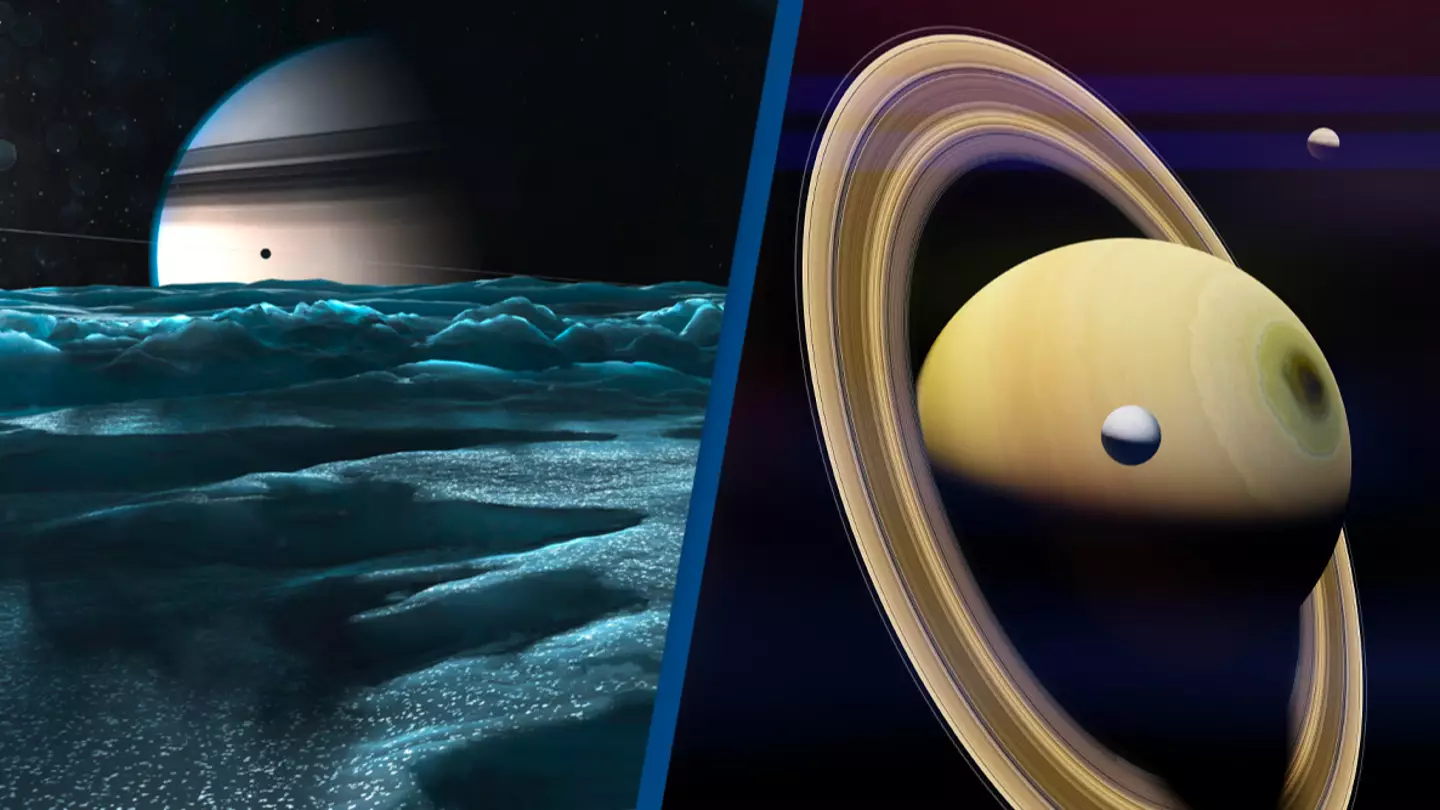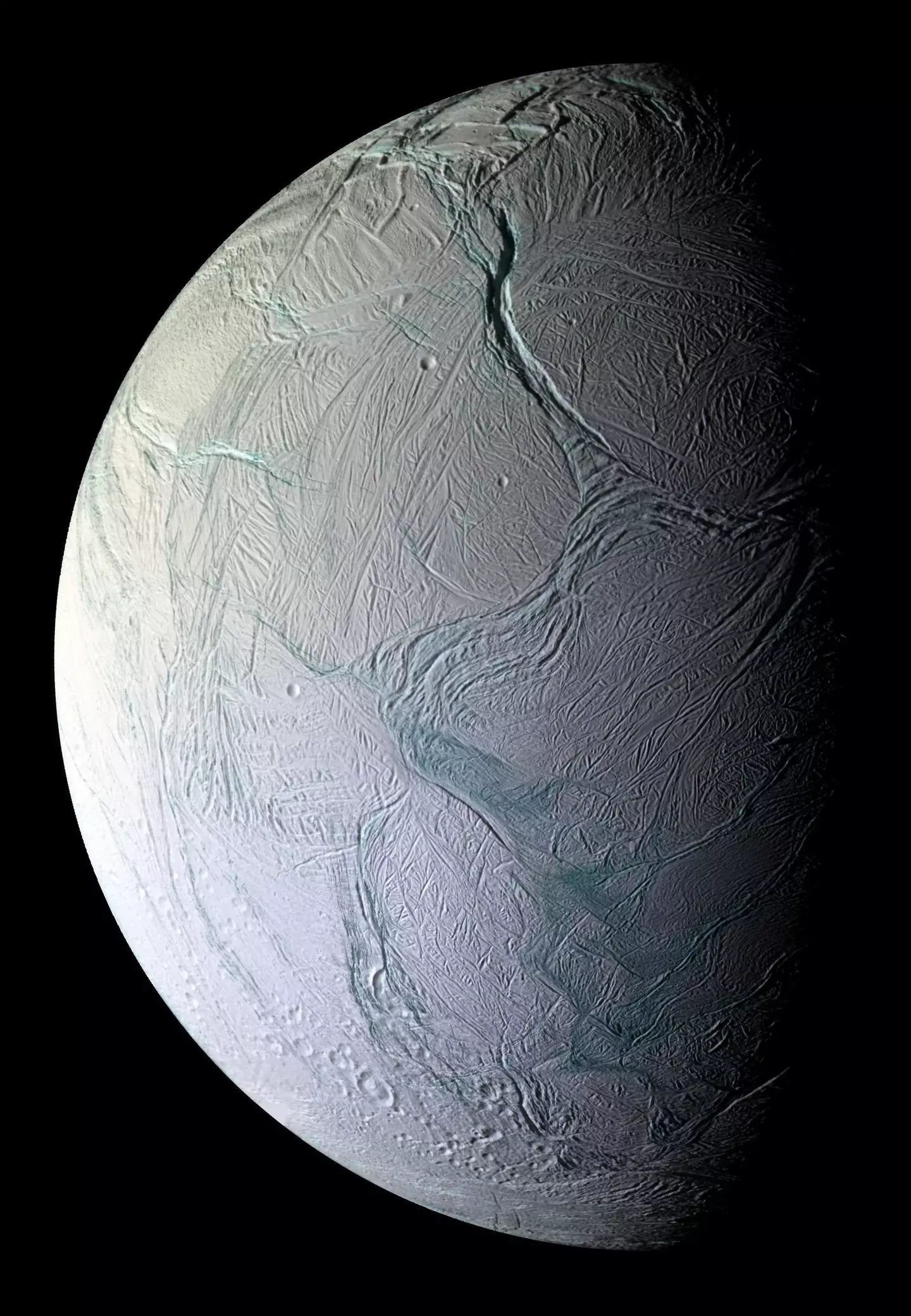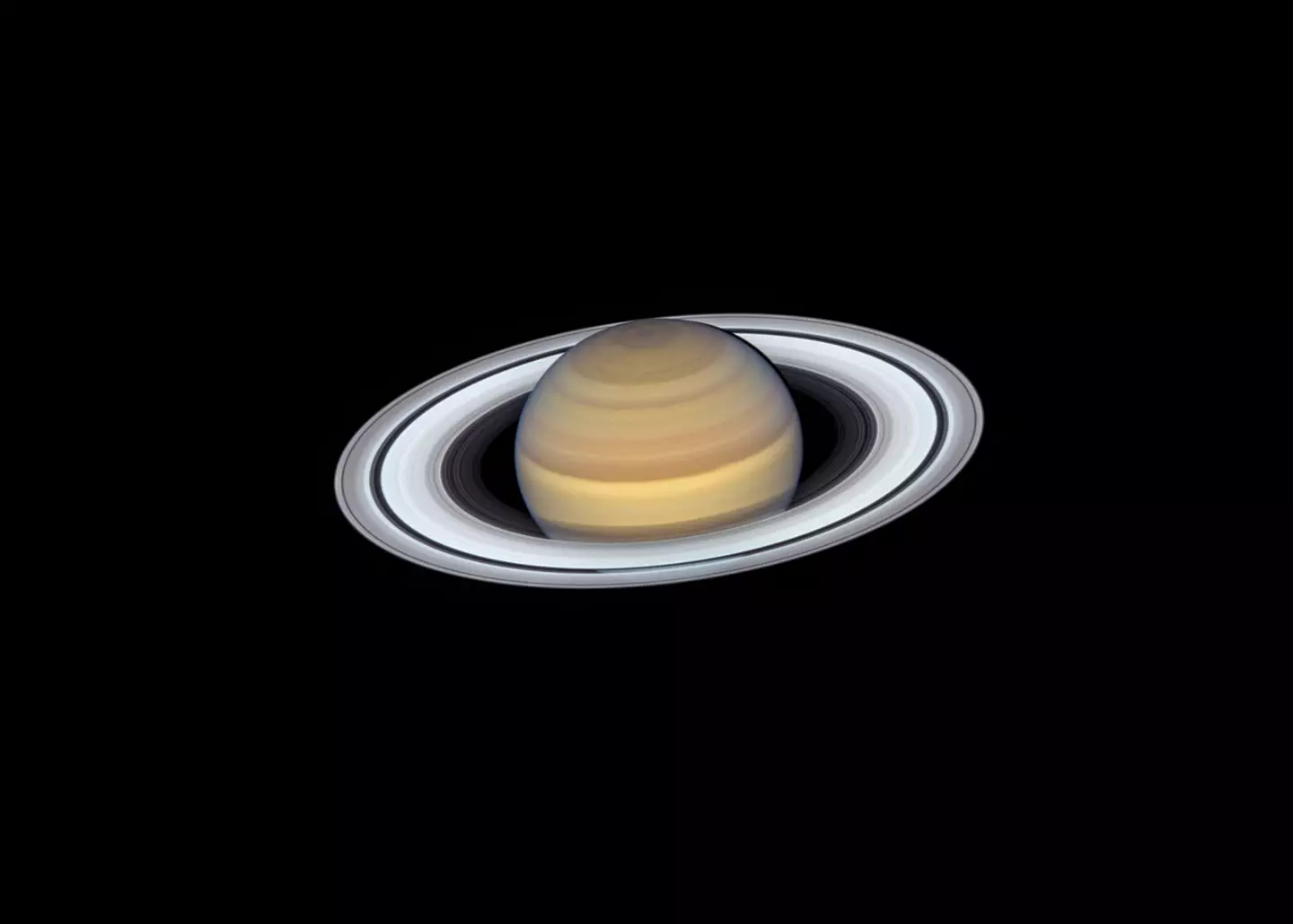
A new study has revealed that Saturn’s moon could support life, due to crucial materials found to be residing within its 'ice-covered water ocean'.
On Wednesday (14 June), a study was published in the scientific journal Nature, titled Detection of phosphates originating from Enceladus’s Ocean.
The subject of the study was Enceladus — a moon off of Saturn which roughly measures 300 miles across and is made of ice — which is often cited as our best chance of finding extraterrestrial life in our solar system.
Advert
In the report, a research team led by Frank Postberg, the Head of Planetary Sciences and Remote Sensing Professorship Planetary Sciences at Freie Universitat Berlin, said they’d found high levels of phosphorus salts residing on the moon.
Known also as sodium phosphates, scientists have revealed that these concentrations are '100-fold higher' in Enceladus’ 'plume-forming ocean waters' than in 'Earth’s oceans'.
The recent phosphate discovery confirms that all six essential elements of life are present on Saturn’s sixth-largest moon, thus potentially making it habitable.

The elements in question are carbon, hydrogen, nitrogen, oxygen, sulphur, and phosphorus.
Speaking to Motherboard, Professor Postberg said environments that feature the six key essentials can support life, despite being far away from the sun.
He said: “Enceladus was already considered a pretty habitable place before this.
“The conditions in the ocean seem to be good for life. There are very likely hydrothermal vent systems at the bottom of the ocean that would be an energy source, so you don't need sunlight.”

He continued to say that on Enceladus, there is also a variety of 'organic compounds' that a previously-conducted study had already detected.
The study concludes that Enceladus has satisfied 'what is generally considered to be the strictest requirement of habitability'.
The findings also suggest that the moon’s ocean 'could be a harbinger of high phosphorus availability in subsurface oceans across most of the outer Solar System'.
Following the publication of his team’s findings, Professor Postberg said we could investigate Enceladus with the technology currently available to us.
“This was basically the last piece that was needed to finally, now, deem Enceladus’ ocean to be habitable without any doubt,” he said.
“Of course, habitable does not mean inhabited. This phosphorus is not something that comes from any life form.
“It's not produced by life. It's just an ingredient that, at least for Earth, was essential for the emergence of life.”
He then went on to state: “We could build a spacecraft with today’s technology and send it to Enceladus to answer the question: is this habitable place actually inhabited or not?
“So with the next mission, we will very likely get an answer to that question.”
Topics: Science, Technology, Space
